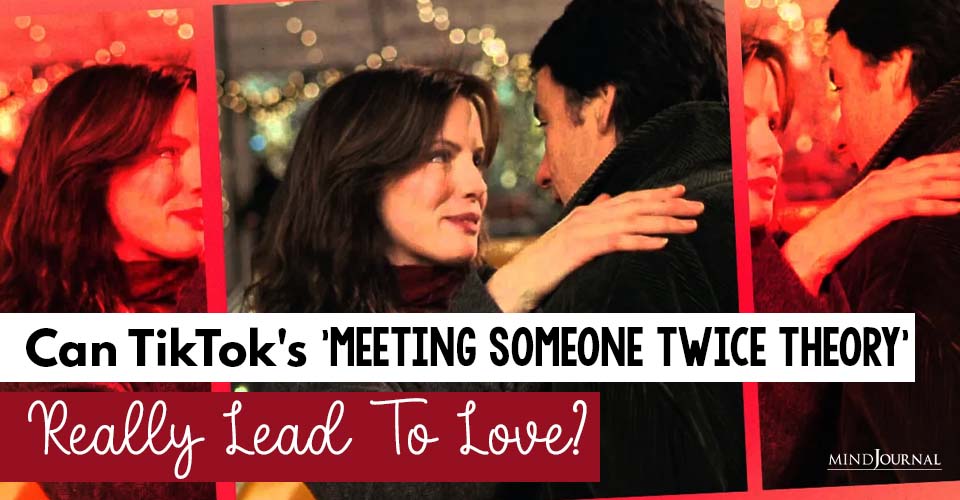Rejection and breakup hurt, but, what hurts the most is being thrown out from someone’s life without any prior communication. You don’t know what went wrong and all of a sudden your relationship has come to a halt and they just disappear. People ghost for a lot of reasons, understanding why people ghost each other can help you recover and move on.
Has someone you were dating suddenly just disappeared without explanation or reason? If so, then you may have been ghosted—a relationship breakup strategy defined by Urban Dictionary as “the act of disappearing on [others] without notice or canceling plans with little or no choice.”
“Ghosting is simple. They were afraid, to be honest. You didn’t lose much.” – Myles Scott
In a recent study, Leah LeFebvre and colleagues set out to examine the practice of ghosting in more detail (LeFebvre et al, 2019). Participants reported their familiarity and experience with ghosting—either as those who had ghosted others or those who had been ghosted themselves—by answering the following:
- Why did you choose to ghost another?
- Why did you choose to ghost rather than directly indicate your intentions?
- When did you decide (or at what point) to ghost?
- Why do you think you were ghosted (in the past)?
- What do you feel are the reasons or motivations as to why you were ghosted?
- In what specific conditions (e.g., time of day, location, etc.) or mediums (e.g., text, Facebook, face-to-face, etc.) did the ghosting occur?
- Is there anything we should consider about the ghosting experience that we have not asked you?
From participants’ responses, the researchers set out to ascertain how ghosting is understood and defined, how and why people ghost, and what people’s experiences of ghosting typically are.
Related: 7 Essential Psychological Truths About Ghosting
What Does Ghosting Mean?
Participants’ responses indicated that the meaning of ghosting remained quite ambiguous to them, but was characterized by words such as avoid, disappear, exit, or disengage. In terms of ghosting on Tinder, one participant stated that people may start talking on Tinder, but if they are not interested, then they can just stop (ghost them).
Participants reported that they had initiated ghosting on 29.3 percent of occasions, had been ghosted on 25.3 percent of occasions, and had been in both roles on 44.2 percent of occasions.
Some 74 percent of participants indicated that ghosting was an appropriate strategy for a relationship breakup. Those who had been ghosted were last ghosted anywhere between one week to nine years previously. Overall, experiences of ghosting coincided with participants’ use of dating apps and online dating.

What Is The Ghosting Process?
Three themes emerged around the ghosting process. These were the medium through which ghosting occurred, the time interval of the ghosting, and the permanency of ghosting.
Ghosting through social media or through Tinder, and the fact that individuals had often not met face-to-face, made the ghosting process easier.
Participants reported that ghosting took place along a time period ranging from sudden (abruptly ceasing contact) to gradual (slowing down contact). One respondent described this as slowly drifting apart, where people might stop talking over a period of time. This would increase the degree of uncertainty for the person experiencing the ghosting.
Ghosting permanency was reported to be either short-term or permanent. Short-term ghosting might have been the result of a holiday or even forgetfulness on the part of the person ghosting and in this case, was described as temporary or short-term.
Long-term ghosting was described as shutting someone out of your life completely where there is no hope of people communicating again in the future. Quite obviously, those ghosted would have no idea as to whether the ghosting was temporary or permanent.
Related: How To Deal With Ghosting: The Dating World’s Vanishing Act
Why People Ghost Others?
Five themes were identified around the reasons people might ghost others. The first of these was convenience, which indicated that those who ghosted favored this method of relationship breakup compared to other strategies. In other words, they indicated that it was easier compared to having a face-to-face interaction, which might have become emotional.
The second theme was attractiveness, which referred to how those performing ghosting selected their partners online. Indeed, online dating offers an abundant choice of potential partners. Those ghosting might thereby just cease contact with someone because they have moved on to a better partner option.
Negatively valenced interaction was the third theme, which described participants’ decline in interest following some sort of unfavorable behavior on the part of the person they wished to ghost, which served to justify the ghosting.
Fourthly, relationship state referred to a combination relationship type (dating, romantic partner) and the length of time the relationship had existed. In other words, when people chose to ghost others, they considered these two factors.
If, for example, they had been on only one date, then they considered ghosting to be justified, rather than having a conversation about why there might be no future dates.
Similarly, the decision to ghost might also depend on the amount of time people had known each other; a brief period was not considered enough time for a formal breakup, for example, whereas if people had dated for a longer period of time, then ghosting was not a dissolution option. Consequently, relationship type and length were factors determining to ghost.
The final theme was safety, which referred to a perception of danger from ending the relationship. Quite obviously, ghosting offers a safe way to dissolve a relationship without placing the person doing the ghosting in any danger from the person being ghosted.
Want to know more about this relationship strategy? Check this video out below:
How Do You Know You’ve Been Ghosted?
Participants described three ways in which they realized they had been ghosted. The first indication was modified communication, which comprised of a lack of communication, lack of reciprocity, and then a sudden realization of the situation often only realized retrospectively.
This may have occurred over various time periods, with the communication just decreasing rather than completely stopping, but often characterized by abrupt or short responses, which make the dissolution slow and unclear. Modified communication creates uncertainty for those ghosted, leaving them to come to their own conclusions regarding the current status of a relationship.
The second was lessening interest which was experienced in terms of a de-escalation of the relationship. Those ghosted reported experiencing a decrease in attention from their partner or a feeling of a lack of intimacy.
Finally, a change in relationship status referred to observing a declaration of relationship status change on social media by the person who had ghosted them. In other words, a person they were dating changed their status to being “in a relationship” with someone else.
The findings from this study provide information on how ghosting is understood by those enacting the ghosting and those who experience ghosting. Furthermore, ghosting is generally evident via online means and occurs asynchronously (not in real-time), which gives the person ghosted time to assess the situation and come to a conclusion.
In a time of online communication, there may be a little more ambiguity around the idea of what is meant by a relationship, which may have an impact on ghosting. There is no doubt that relationship dissolution may be distressing and the ambiguity through which online interaction is conducted may contribute to this, with individuals left without appropriate closure.
References:
LeFebvre, L. E., Allen, M., Rasner, R. D., Garstad., S., Wilms, A & Parrish, C. (2019). ‘Ghosting in Emerging Adults’ Romantic Relationships: The Digital Dissolution Disappearance Strategy’ Imagination, Cognition, and Personality: Consciousness in Theory, Research, and Clinical Practice, 39(2) 125–150.
Written By Martin Graff Originally Published In Psychology Today
Frequently Asked Questions (FAQs)
Why is ghosting so common?
Disappearing without any proper explanation or communication is not actually a new thing, it has been there forever. But the word ghosting has been introduced to us recently. Ghosting is becoming more common because it is effortless and pretty easy to escape rather than explaining things.
What ghosting says about a person?
To put it simply, a person who ghosts is an escaper and lacks the ability to be upfront. A person who fears direct and honest conversation will ghost without giving any explanations.
How long with no contact is considered ghosting?
It depends on person to person how they want to give the benefit of doubt to another. But when a person goes no contact for 4-5 days with you, you can consider yourself been ghosted.











Leave a Reply